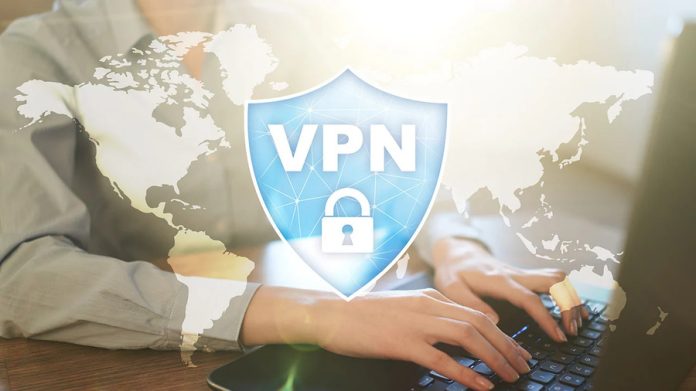These days, maintaining online privacy and security has never been more important. Thankfully, Virtual Private Networks, or VPNs, have emerged as a vital tool for helping secure your internet activity, protecting it from prying eyes. However, the overwhelming array of VPN services on the market can make even choosing the right one into a challenge.
To aid your decision-making, we’ve crafted this 9-tip guide on choosing the best VPN service for your needs.
Check Out VPN Service Reviews and Ratings
Dive into the world of VPNs by exploring reviews and ratings. User experiences can provide valuable insights into a VPN service’s speed, stability, ease of use, and customer service responsiveness. Tech experts often conduct detailed reviews too, analyzing the VPN from a professional standpoint. For example, VPN options like TotalAV review particularly well among experts for general use. Both types of reviews can provide a balanced view of the service. But remember that some reviews, especially overly glowing or excessively negative ones, may not be entirely genuine. Make sure to source your reviews from reputable websites, and cross-verify the information whenever possible.
Understand Your Specific VPN Needs
A critical first step in your VPN selection process is to clearly identify your specific needs. Are you a frequent traveler needing to secure your connection on public Wi-Fi networks? Or perhaps you’re an avid streamer wanting to bypass geo-restrictions on content? Maybe you’re a business owner who wants to provide remote employees secure access to your company network? Each use case will require different VPN features. For personal use, privacy and content accessibility may be primary factors, while for businesses, scalability, and simultaneous connections could be more important. Having a clear understanding of your needs will make the subsequent steps much easier.
Look for a Clear and User-Friendly Privacy Policy
The essence of a VPN is privacy, and therefore, the service you choose should prioritize this. Look for a VPN provider that enforces a strict no-logs policy. This means the provider pledges not to record, or “log,” details of your online activities. However, this is not enough. The provider should also have a clear, straightforward privacy policy that’s free of ambiguous jargon. The best services will have a policy that is easy to find, read, and understand, demonstrating their commitment to transparency and customer trust.
Check Server Locations
The geographic diversity and number of servers a VPN offers can greatly impact your online experience. Having numerous servers across the globe means you’ll likely always have a server nearby, ensuring a better connection speed. It also means you can select a server in a location where the content you wish to access is not restricted. When considering a VPN service, check if they have servers in the regions that matter most to your needs.
Evaluate Speed and Performance
Using a VPN often results in a decrease in internet speed because your data needs to be encrypted and then routed through a VPN server. However, the level of impact varies from one VPN service to another. A well-optimized VPN service can offer a fast and stable connection, minimizing the slowdown. Try to opt for a VPN known for delivering reliable performance, ensuring your online activities won’t be hindered by slow speeds.
Consider Multi-Device Support
In this multi-device era, we often find ourselves switching between desktops, laptops, smartphones, and tablets for various online activities. Your chosen VPN should support this habit by offering simultaneous connections across multiple devices. Ensure the VPN is compatible with all the devices and operating systems you use. Ideally, you want compatibility with a wide range of devices—ensuring your online privacy and security regardless of how you use the internet.
Assess Pricing Options
While free VPNs may seem attractive, they often come with significant restrictions in data usage, server availability, speed, and sometimes, compromised security. In contrast, paid VPNs typically offer unlimited data, a wide range of servers, higher speeds, and superior security features. Prices among paid VPNs can vary, so compare the cost against the features and the reputation of the service. Look for a provider that offers a good balance of features for the price, ensuring you’re getting a reliable service that’s also cost-effective.
Look for Reliable Customer Support
Even with the best VPN service, you may encounter technical issues or have questions. That’s where responsive customer support becomes invaluable. Look for a VPN provider that offers comprehensive support options, be it through live chat, email, phone, or even a detailed knowledge base. Good customer support can make your VPN experience smoother, ensuring you have the assistance you need when it’s most crucial.
Evaluate Any Business-Specific Needs
If you’re selecting a VPN for business use, additional factors come into play. Look for VPNs that offer business-centric features such as dedicated IP addresses, team management options, and more robust security features. You may also want to consider the VPN’s scalability—as your team grows, can the VPN service grow with you? The best business VPNs will offer tailored plans to suit businesses of all sizes, and will provide dedicated support to ensure everything runs smoothly. If your business has specific compliance requirements, ensure the VPN can meet these too.
By following these tips, you can now evaluate VPN services more confidently and allow you to find a service that aligns with your personal or business requirements. Choose your VPN wisely, enjoy the enhanced control and peace of mind it brings.




































